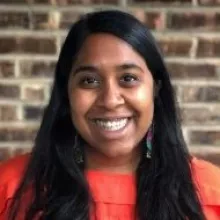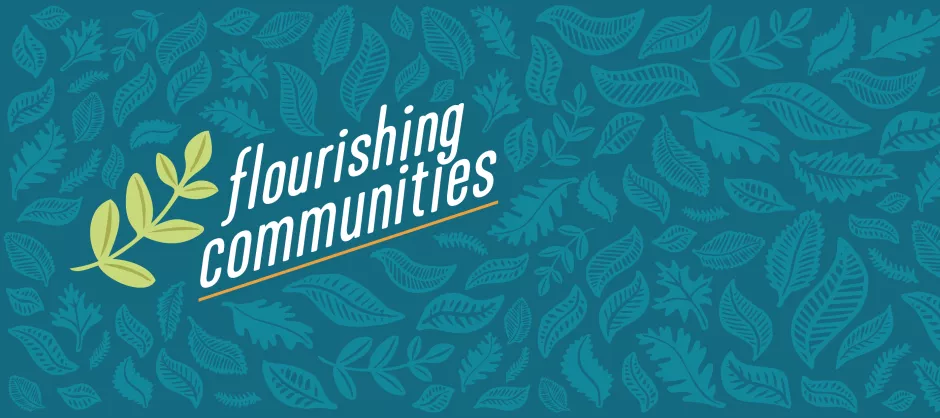
This resource is part of the Flourishing Communities Collection.
This 7-week series features 15-minute large group talks that explore values and practices in the Bible that are necessary for a community to truly flourish.
- Week 1: Embodied Faith
- Week 2: Selfless Love
- Week 3: Radical Inclusion
- Week 4: Mutuality
- Week 5: Reconciliation
- Week 6: Costly Compassion
- Week 7: Justice
When we embody faith, not only do individuals, communities, and systems flourish, but we also testify to who God is and what Jesus-centered communities are all about.
Large Group Guide
We have created a guide that outlines your large group time. This guide can be used for each of the seven weeks.
View Guide as PDF View Guide as DOCX
Week 1: Embodied Faith
Acts 2:37-47
Discussion Questions
- How would you define embodied faith?
- Jazzy shares about her friendship with Sherin and Allison. What did it mean for them to embody faith together, and where did you see examples of flourishing as a result?
- What would change in your community or on your campus if you embodied faith as was demonstrated in Acts 2 and through Jazzy’s talk?
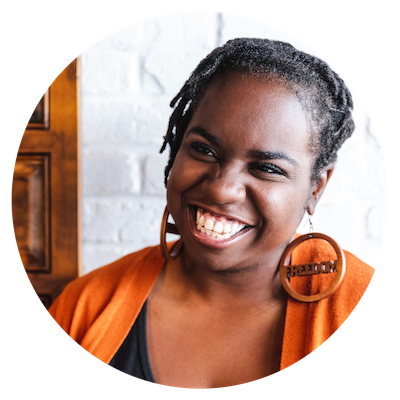
JAZZY JOHNSON
Resource Specialist for Black Campus Ministries – InterVarsity Christian Fellowhship/USA
Jazzy Johnson, a proud Native Texan and adopted Chicagoan, specializes in curating and facilitating transformative spaces for learning & listening in the area of social justice. A graduate of Northwestern University, Jazzy directed InterVarsity Christian Fellowship’s Chicago Urban Program for six years, and currently serves as the Resource Specialist for InterVarsity’s Black Campus Ministries Department. She is also pursuing her Master of Divinity at the Candler School of Theology in Atlanta.
Week 2: Selfless Love
1 John 3:16-24
Discussion Questions
- At the beginning of his talk, Steve mentioned some ways that selfishness shows up in his own life. In what situations does selfishness tend to show up in your life, and how does that affect your ability or desire to love others?
- We know what love is because of Jesus. How have you experienced Jesus' love?
- How would loving selflessly, as Jesus did, lead to our own flourishing or that of our community? What "small acts" of friendship can you commit to practicing this week to seek that flourishing?
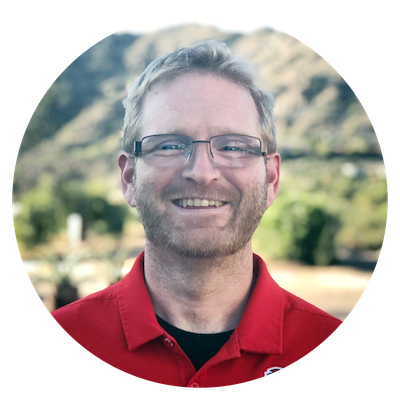
STEVE TAMAYO
Strategist for Creative Labs and Latino Fellowship (LaFe) – InterVarsity Christian Fellowship/USA
Steve Tamayo currently serves with InterVarsity as a Strategist for both the Creative Labs and the Latino Fellowship (LaFe). He also directs the Mixed Advisory Team to bless students, faculty, and staff of mixed ethnic heritage. He’s married to Amy and together they have four children and lots of adventures. You can find him as a host on the Ministry During the Disruption podcast and the Con Confianza podcast.
Week 3: Radical Inclusion
Acts 15:1-35
Discussion Questions
- What stood out to you about Acts 15 and the radical inclusion modeled?
- Caroline shared about how her experience as a youngest child, a South Asian American, and a woman impacted her view of God as well as her perceptions of how God viewed her. What experiences or aspects of your identity have impacted how you view God or your understanding of how God views you?
- The kingdom of God is one of radical inclusion through grace alone, because of Jesus. How would this kind of community impact relationships or lead to flourishing (whether personal or communal)?
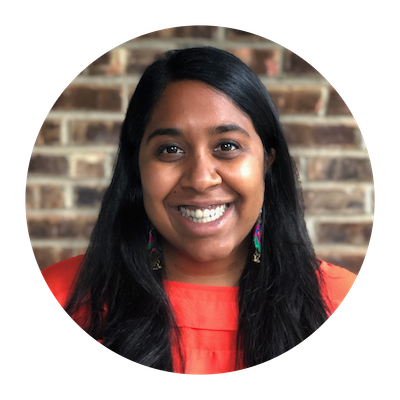
CAROLINE LANCASTER
Associate Director of Multiethnic Initiatives – InterVarsity Christian Fellowship/USA
Caroline is a second-generation South Asian American that has lived in California, Singapore, Boston, and the Chicago ‘burbs. Before serving as the Associate Director for Multiethnic Initiatives, she was InterVarsity staff at Boston University. Caroline is a certified Cultural Intelligence Trainer and participated in Rev. Dr. Brenda-Salter McNeil’s Reconciliation Leaders Cohort. She has been married to her wonderful husband for nine years, and is a mother to two boys.
Week 4: Mutuality
1 Cor 12:12-28
Discussion Questions
- How would you describe the difference between inclusion and mutuality? Why do flourishing communities pursue the latter?
- What would need to change about our community in order to embody mutuality as Nikki describes? What would it look like if we really believed, “without you, my picture of God would be incomplete, and without you, we are incomplete”?
- Reflect Individually: What peoples groups or personalities are received at "your table" as family? Take a few minutes to pray, repenting over the ways you or your community have undervalued or written off certain people dispensable. Ask the Lord to heal you of those thoughts and ideas. Pray for the Holy Spirit to expand your heart to share and hold this community in honor, sharing in their suffering as well as their joys.

NIKKI TOYAMA-SZETO
Executive Director – Christians for Social Action
Nikki has a long history of working with leaders of faith communities to help ignite a passion for biblical justice among the Global Church. She writes and speaks from her global experiences and leadership. In addition to her vocational ministry as Executive Director of Christians for Social Action, she serves on the board of Interserve USA, Missio Alliance, and Casa Chiralagua. Nikki resides in the DC metro area with her family.
Week 5: Reconciliation
Luke 19:1-10
Discussion Questions
- What stands out to you about Jesus through Zacchaeus' story and Sandra's preaching?
- How does reconciliation through this lens compare or contrast to your understanding of reconciliation?
- Being seen and known by Jesus leads Zacchaeus to live a courageous life of peace and justice. How has being seen and known by Jesus impacted how you love and serve the world around you?
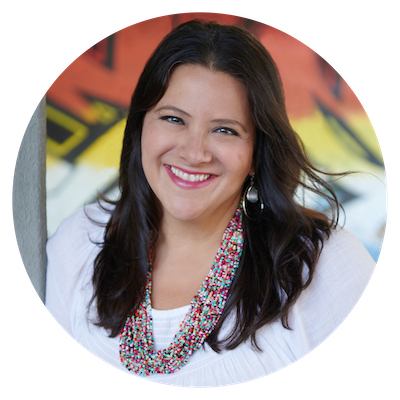
SANDRA MARIA VAN OPSTAL
Executive Director and Co-Founder – Chasing Justice
Sandra Maria Van Opstal is a second-generation Latina and the Executive Director of Chasing Justice. She is an author, pastor, and activist reimagining the intersection of faith and justice. Sandra has given leadership in global movements such as Lausanne, The Justice Conference, and Urbana Missions Conference. She holds a Masters of Divinity from Trinity Evangelical Divinity School and is currently pursuing doctoral work in Urban Leadership and Transformation.
sandravanopstal
sandravanopstal
sandramariavanopstal
chasingjustice_
Chasing Justice
Week 6: Costly Compassion
Luke 10:25-37
Discussion Questions
- What is Jesus trying to communicate to the lawyer about what it really means to follow God? What is the significance of the Samaritan being the model of compassion that leads to flourishing?
- As Ray unpacked the story, he shared, "The problem is seldom that we don't know what to do. The problem is that we don't want to do it." How do you relate to that statement? How does this passage and Ray's message move us from just seeing to seeing and responding?
- Who are you in the story (e.g. as Ray shared: the Samaritan, the lawyer, the priest or Levite)? What is God's invitation to you in light of that?
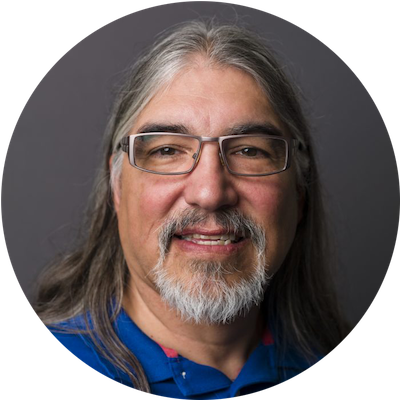
RAY ALDRED
Interim Academic Dean and Director of Indigenous Studies Program – Vancouver School of Theology
Reverend Doctor Ray Aldred is a husband, father, and grandfather. He was ordained with the Christian and Missionary Alliance in Canada. He is status Cree from Swan River Band, Treaty 8. He resides with his wife in Richmond, British Columbia, Canada. Ray is the director of the Indigenous Studies Program at the Vancouver School of Theology whose mission is to partner with the Indigenous Church around theological education.
Week 7: Justice
Amos 5:4-24
Discussion Questions
- How were you inspired or challenged by Moani's description of the ripple effects of Maunawili Stream that brought nourishment, refreshment, and fruitfulness for the land and the community? How does this imagery helps us understand Amos' call to God's people to let justice roll like a stream?
- Looking back: who are the justice warriors that have gone before you and inspire you? Looking ahead: what can you learn from these warriors that can equip you to pursue justice and seek the flourishing of your campus and community for generations?
- To close your time, pray this prayer aloud together, adapted from the exhortation and blessing that Moani shares at the end of her talk:
(Pray together aloud in one voice):
Iesu, you were victorious over the injustices of our world. You have broken the chains that bind us. Help us, ke Akua, to carry out your heart. Give us kingdom eyes to see what could be. Give us kingdom ears to hear the flow of justice even when we don’t know it’s there. Let the world see and know that we are yours by our aloha. Fill our hearts with faith, hope, and aloha. In your name, amen.
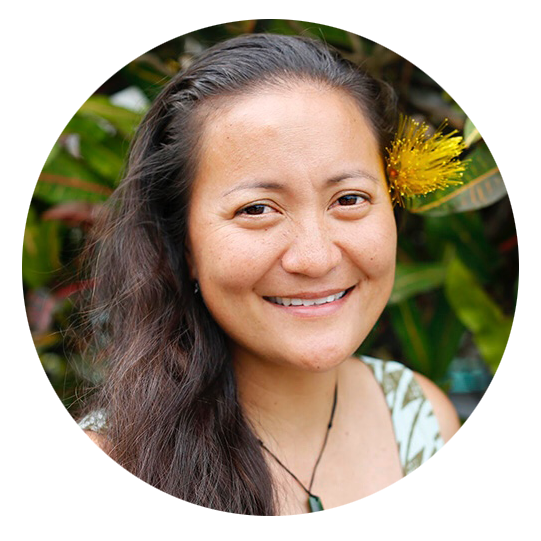
MOANIKE'ALA NANOD-SITCH
Hawaii Area Ministry Director – InterVarsity Christian Fellowship/USA
Moanike'ala Nanod-Sitch is kanaka 'oiwi o Hawai'i (Native Hawaiian), Chinese, Japanese and Ukranian and is from Kailua, O'ahu. In InterVarsity, she has led Hawai'i Pasifika ministries, served on the Native Ministries Leadership Team, and is now the Hawai'i Area Director. With ke Akua (God) and a student, she started "Hui Poly," a Native Pacific Islander chapter reconciling faith and culture. She is pastor of a Hawaiian indigenous church, "Ka 'Ohana o ke Aloha". Moani desires all to know the depth of ke Akua's aloha.
